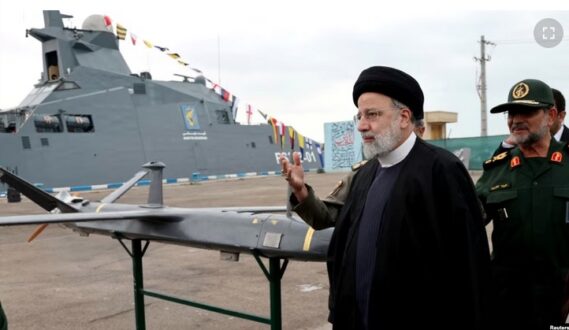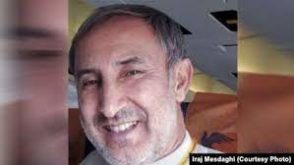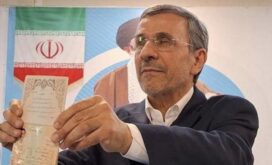RFL/RE – Esmat Vatanparast lost 11 members of her extended family during the mass executions of political prisoners and regime opponents in Iran in the 1980s.
For the last three decades, the elderly Vatanparast has been grieving and seeking justice for the deaths of her family members, including her two daughters and three brothers.
On May 19, when President Ebrahim Raisi was killed in a helicopter crash in northwestern Iran, Vatanparast says she obtained a semblance of justice.
Raisi allegedly played a role in the estimated execution of at least 5,000 members of the Mujahedin-e Khalq Organization (MKO), students, and leftist political parties and groups during the summer of 1988.
“My happiness has no limits,” Vatanparast, who fled to Sweden after the massacre, told RFE/RL’s Radio Farda on May 20, the day Raisi’s death was confirmed. “Today is a beautiful day for the people of Iran.”
Raisi, known as the “butcher of Tehran,” was accused of serving as a prosecutor on a “death committee” that ordered the executions. Many were executed in prisons, including in the Iranian capital’s notorious Evin prison.

Vatanparast said it was “very difficult” for the families of the victims of the massacre to witness the rise of Raisi, a former judiciary chief who became president following a controversial election in 2021.
“I want to congratulate all the mothers and fathers whose children were killed by the Islamic republic and couldn’t say or do anything,” said Vatanparast, who is in her 80s.
The mass killing was ordered by the founder of the Islamic republic, Ayatollah Ruhollah Khomeini.
In a fatwa, or religious decree, Khomeini declared that “apostates” and those who had taken up arms against the Islamic republic were “waging war against God” and should be sentenced to death. Some estimates of those executed run into the tens of thousands.
The fatwa was issued in the last days of the 1980-88 Iran-Iraq War, during which members of the MKO switched sides and fought alongside Iraqi forces.
Only one Iranian has been convicted and jailed over the mass executions. Hamid Nouri, a former Iranian prison official, was sentenced to life in prison in Sweden in 2022 for his role in the massacre.
‘Death Of This Executioner’
Mehdi Aslani was a former member of the leftist Fadayian-e Khalq organization who served time in Gohardasht prison near Tehran and Evin prison.
Aslani survived the mass executions in 1988 and then fled to Germany. He testified during Nouri’s trial in Sweden.
“I’m happy at this moment because a symbol of murder is gone,” the former political prisoner told Radio Farda. “I would be lying if I said the news of the death of this executioner did not bring me joy.”

As rescue teams were still searching for the wreckage of Raisi’s helicopter, videos emerged on social media showing fireworks going off at night in what appeared to be celebrations.
Mihan Rusta, whose husband was among those executed in 1988, says the celebrations were the result of decades of anger and pain.
Celebrating a death may “not be humane,” she said, but it is to be expected when “you’ve been under pressure” for years.
“It’s a natural and human reaction to feel a sense of relief when circumstances intervene when you couldn’t,” Rusta told Radio Farda.
Like many other family members of the victims of the mass executions, Rusta bemoaned that Raisi’s death meant that he would evade justice for his alleged crimes.
Raisi took “part of the truth” to the grave, she said. “For those who seek justice…you will always carry this thought with you. The knowledge that you’ll never know the whole truth,” she added.
As president, Raisi oversaw a bloody crackdown on unprecedented antiestablishment protests in 2022 and the tightening of the country’s morality laws.
Vatanparast said it would be “good for the world” for people like Raisi to go on trial. But she added, “The sooner they die…the safer people’s children.”
 Shabtabnews In this dark night, I have lost my way – Arise from a corner, oh you the star of guidance.
Shabtabnews In this dark night, I have lost my way – Arise from a corner, oh you the star of guidance.



